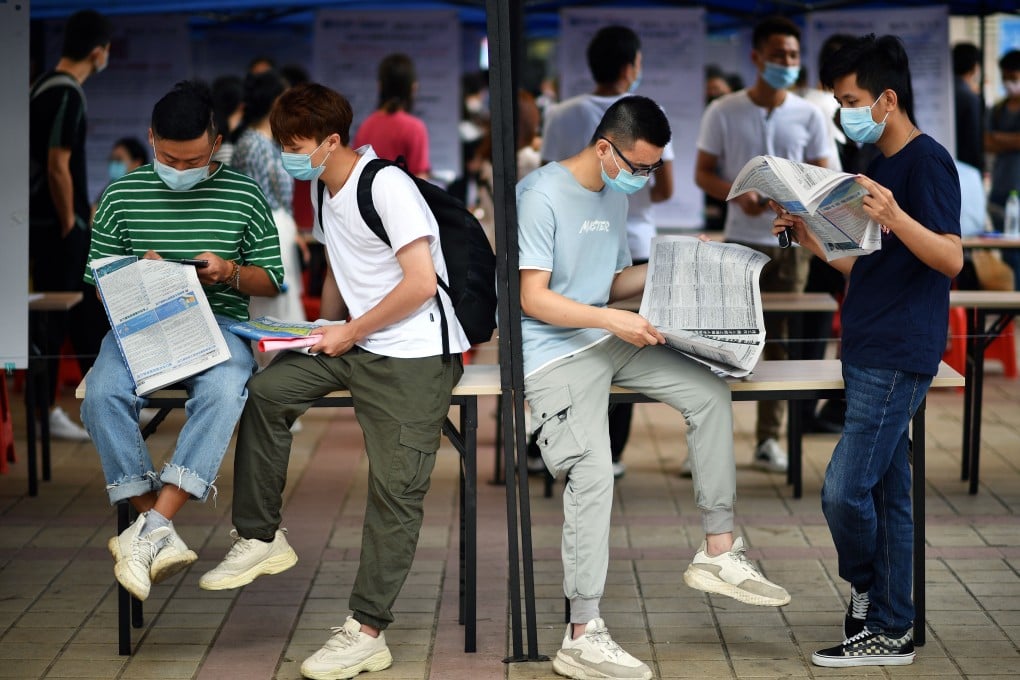China starts campaign to help new graduates find jobs as economy slumps
- Initiatives include recruiting more teachers, expanding army enlistment, more hiring by state-owned firms, and more subsidies for small businesses
- China is facing daunting economic problems as a result of the coronavirus pandemic, with GDP contracting 6.8 per cent in the first quarter

Beijing has kicked off a campaign to help graduates entering the labour market as the country faces growing pressure to reboot the sagging economy and tackle unemployment.
Ten initiatives were announced to find jobs for this year’s 8.74 million new graduates in an online launch on Wednesday by officials from the labour, education, human resources, and industry and information technology ministries.
The “100-day” campaign – highlighting the urgency for young people to find work – includes more graduate degree programmes for universities, hiring an extra 400,000 graduates as teachers, expanding army enlistment, increased hiring by state-owned enterprises, more subsidies for small businesses, and encouraging graduates to start their own businesses.

03:03
Employment is high on the government’s agenda – preferential job creation measures to support businesses were discussed early this week at a cabinet meeting chaired by Premier Li Keqiang.